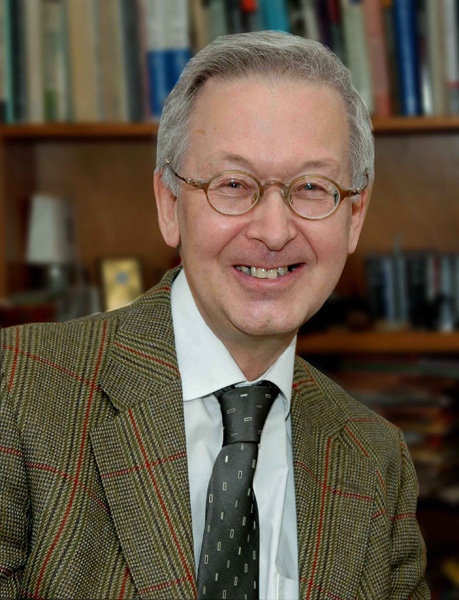Study options
- Starting in
- September 2025
- Location
- Mile End
- Fees
- Home: £12,850
Overseas: £29,950
EU/EEA/Swiss students
What you'll study
This course is interdisciplinary in nature and involves a combination of theoretical and practical approaches. You’ll explore the latest experimental techniques in engineering, examine the characteristics, structure and properties of materials in greater depth, and have the option to choose from modules covering manufacturing processes, nanotechnology and nanomedicine, nanocomposites, polymer synthesis, renewable energy and more.
Alongside your taught modules, you'll work on a research project throughout the academic year, within one of our materials-based research groups. Your research project could be focused in the fields of ceramics, polymers, composites, elastomers, functional materials or manufacturing technologies.
You will also gain practical experience in our world-class processing facilities, such as the NanoVision Centre for Advanced Microscopy, which contains equipment for high-resolution imaging, and structural, chemical and mechanical analysis.
Accreditation
Our MSc in Advanced Materials Science and Engineering has been accredited by the Institute of Materials, Minerals and Mining (IOM3) under license from the UK regulator, the Engineering Council.
The accredited MSc will meet, in part, the exemplifying academic benchmark requirements for registration as a Chartered Engineer (CEng). Accredited MSc graduates who also have a BEng (Hons) accredited for CEng will be able to show that they have satisfied the educational base for CEng registration.
It should be noted that graduates from an accredited MSc programme that do not also have an appropriately accredited Honours degree, will not be regarded as having the exemplifying qualifications for professional registration as a Chartered Engineer with the Engineering Council; and will need to have their qualifications individually assessed through the Individual Case Procedure if they wish to progress to CEng.
Structure
- Two compulsory modules
- Four elective modules
- Research project
Compulsory/Core modules
This module will introduce several dimensions of ethical design, considering the system life cycle including the impact of end-of-life. Elements incorporating ethics into effective system design using a modern set of theoretical frameworks including circular economy, planetary boundaries and environmental life cycle assessment will be considered. The consequential impact of large scale technology shifts to guard against replacing one problem for another will be covered. The role of meeting and contributing to environmental regulation and policy will be explored and an 'ethical cost benefit analysis' will be introduced that internalises otherwise external environmental costs. Decision making under a complex array of economic and environmental objectives will be considered via multi-criteria decision analysis.
The module is an intensive research module that spans all three MSc semesters. It draws together the knowledge and skills from the taught component to address a research challenge of significant scope to be undertaken independently, under supervision. It focuses on the technical, project management and communication skills needed to successfully execute academic- and/or industry-oriented research. The project entails to apply research methods to solve original problems of fundamental or applied nature.
This is an advanced module in computational modelling focusing on computational solids. The finite element method is covered together with applications to medical, aerospace and mechanical engineering. Hands on experience in solving engineering problems using commercial packages is an important part of the module. There is an introduction of optimisation methods used in computational engineering across industry sectors. Topology shape and size optimisation methods and their applications will be covered. It is envisaged to provide guest lectures by SEMS' Visiting Professors. The student will have assignments with the industry-leading software ABAQUS for solving generic FEA problems as well as structural topology optimisation problems. Student will be encouraged to select problems relevant to their programme of study.
Elective modules
This module will give students a thorough understanding and knowledge of state-of-the-art technologies for macromolecular engineering. It will focus on key areas for industrial applications and help students draw structure-property relationships and link these to synthetic approaches. Specifically, macromolecular engineering in the fields of high performance materials, tissue engineering and biotechnologies, sensors, materials for energy production and in the micro-electronics area will be discussed and applied. The module will cover advanced polymer synthesis techniques and their application to the design of conjugated polymers, the application of these concepts to macromolecular engineering in microfabrication and 3D printing and the design of biomaterials and hydrogels, and their biofunctionalisation. The module will present state-of-the-art platforms for solid phase synthesis of peptides, oligonucleotides, and recombinant protein production.
This module will define and describe nanostructures and nanomaterials. it will include how they are manufactured, appropriate characterisation technologies and a description of their application in a range of fields. In particular the application and challenges in the use of nanotechnology in medicine will be considered, including the regulatory issues to be considered, the use of nanomaterials for drug delivery and the development of lab in a chip technologies.
The module aims to equip students with an appreciation of the global energy scene and the impacts of energy production and consumption on the environment. The module provide the students with an understanding of the origin and nature of various renewable/sustainable energy resources, the assessment of their ability to meet our future energy demands, and the design of renewable energy systems.
This module will focus on electrochemical energy storage principles, energy storage materials, device design and manufacturing, and chemical engineering processes taking place in these type of technologies. It will address fundamental aspects of electrochemistry associated with electrochemical energy storage systems. This module will give the students a thorough knowledge of the importance of energy storage in the field of Sustainable Energy Engineering and provide them with an advanced understanding of key processes in devices such as batteries and supercapacitors, and their important role in the decarbonisation of the power sector.
Deriving insight from data is essential to problem-solving innovation in modern engineering disciplines. To gain this insight, the data needs to be understood and appropriately interpreted. In this module, you will develop tools, systems, and processes to enable the application of artificial intelligence in real-world contexts. You will learn probability theory and the transformation of data from a high- into a low-dimensional space. You will develop statistical thinking in order to design data collection, derive insights from visualising data, obtain supporting evidence for data-based decisions and construct models for predicting future trends from the data. You will learn techniques applied to your discipline for unsupervised and supervised learning and apply them to automating routine engineering tasks, and to apply machine learning approaches to complex and critical systems in a holistic and system-oriented way.
This module introduces students to numerical analysis and computational methods for solving engineering fluid dynamic problems. It enables students to develop skills in programming and using CFD codes using modern computational techniques, including the properties of discretisations and their application to simple model equations. Aspects of modelling turbulence and microscale capillary flow are considered. The students will generate meshes, solve viscous flow problems and perform the analysis of the quality of the simulations.
Solar Energy is an important aspect of Sustainable Energy Engineering. The understanding of key processes within solar energy will provide students with the knowledge needed to progress further within relevant industries within Solar Energy. The module will focus on the following aspects of solar energy: solar insolation; physical background for semiconductor materials; photovoltaic devices and applications; photocatalysis; solar thermal technologies.
This hands-on module will guide the students through the process of biomedical device prototyping and manufacturing via various examples of fluidic chips, implantables, and functional tissue replicas which they will design and fabricate in the lab. Students will become familiar and practice the basics of (1) various polymerization modalities; (2) design for manufacturability principles; (3) advanced fabrication techniques, and (4) metrology and characterization methods to analyze the printed devices and implants. By the end of the module, they will be able to apply their understanding of manufacturing process capabilities and constraints to the design and manufacture of a new biomedical device which they will be challenged to develop and prototype for the final project assessment. The lab in conjunction with the complimentary modules will equip the students with the experience and skillsets required to operate in a medical device industry as a product engineer or product R&D researcher.
This module will provide a comprehensive understanding of the concepts related to and underpinning biocompatibility. It will cover topics including proteins and protein adsorption, biomaterial- cell, blood and tissue interactions, Inflammation, wound healing, foreign body response, Toxicity, hypersensitivity and infection. The pre-clinical testing of biomaterials will be considered with respect to chemical exchange and degradation, cell response (proliferation vs differentiation), evaluation of material compatibility, evaluation of device functionality (biomechanics, remodelling/adaptation). The importance of the intelligent design of pre-clinical test regimes and unbiased critical analysis of test data to drive development and new innovation in biomaterials and medical device design will be emphasized through consideration of case study scenarios. Clinical trials and regulatory approval will also be discussed.
This module is an in-depth study of the intersection of Artificial Intelligence (AI) and imaging science. The module covers key concepts in both fields, including machine learning algorithms and techniques for data gathering in imaging systems. It is designed for students who work with imaging systems, such as cameras, microscopes, MRI/CT scanners, and ultrasound devices, and want to learn more about how to apply machine learning to improve their data gathering and analysis. The module is also suitable for students who are familiar with medical imaging and/or statistical thinking and want to learn more about the applications of these techniques in imaging systems, or for those who already work with both fields and want to gain a new perspective on the topic. It is also appropriate for students with strong mathematical and signal processing backgrounds who want to learn about both fields.
Please note that these modules are subject to change.
Assessment
- 50% Modules
- 50% Research project
- You will be assessed using a mixture of formal examinations and coursework in your taught modules.
- You will undertake self-directed work in completing your extended research project.
Research project
The research project forms a major component of your degree. You’ll complete this under close supervision.
Past Advanced Materials Science and Engineering MSc research projects include:
- Synthesis of degradable polymers with controlled degradation profiles
- Interactions of nanomaterials with electromagnetic waves
- Nanomaterials as secondary energy carriers
- Lead-free piezoelectric ceramics for sensors
- Low cost thermoelectrics
Teaching
You’ll be taught by some of the world’s leading materials scientists and engineers, who are pioneering developments in nanoindentation, graphene sensors, processible semiconductors, sustainable processing and more.
Our academic research feeds into our teaching at all levels, ensuring you share in the latest advancements.
You will be taught through a combination of lectures, seminars and laboratory sessions, as well as completing coursework for academic feedback.
You will be assigned an Academic Advisor who will guide you in both academic and pastoral matters throughout your time at Queen Mary.
Where you'll learn
Facilities
Our facilities include:
- Confocal Laser Scanning and Super Resolution Microscopy Lab
- Hip Wear Simulator
- Mechanical Testing Facilities
- NanoVision Centre
- Polymer Chemistry Laboratory
- Spectroscopy Facility
- Thermal Analysis Facility
- Workshops for Engineering Manufacture
- Ceramics Processing Laboratory
Explore our facilities with our virtual tour.
Campus
Teaching is based at the School of Engineering and Materials Science’s postgraduate facilities, on Queen Mary’s main Mile End campus, one of the largest self-contained residential campuses in the capital.
Our Mile End campus is 15 minutes from Central London by tube, where you will have access to many of the University of London’s other facilities, including the Senate House library.
About the School
School of Engineering and Materials Science
The School of Engineering and Materials Science (SEMS) was the first School in the UK to open a materials department and we’ve been at the forefront of international engineering and materials research ever since.
The internationally competitive work of our research groups pushes the boundaries of science: we’ve been awarded substantial grants to explore the creation of technology to capture energy from sea waves and develop artificial kidneys to avoid animal testing. Our research is even celebrated on stamps!
You will be taught by our internationally recognised staff and will have access to our outstanding facilities.
In the 2021 Research Excellence Framework (REF), the School ranked 7th overall in Engineering and 2nd for the measure of the quality of our research outputs. We are in the top 120 international institutions for engineering (THE World University Rankings, 2022). We are part of both the University of London and the Russell Group.

—"I was most surprised by the opportunity to have access to the laboratory and actually be able to practice all the things we heard in class. My research project investigates the characterisation of 3D-printed leather waste and ecotpu compounds for sustainable fashion, for this I’ve been using the mechanical testing lab and the functional materials lab."
Anna Fagionatto, Advanced Materials Science and Engineering MSc, 2023
Career paths
You’ll leave this MSc as a well-qualified graduate, with opportunities for employment in a range of industries including the automotive, aerospace, biotechnology and renewable energy sectors, as well as in research and development.
Our Industrial Liaison Forum gives you a chance to network with our industrial partners and build your professional contacts while at university.
- 95% of Engineering and Materials Science postgraduates are in employment or study 15 months after graduation (GOS, 2021/22)
- 89% of those postgraduates are in highly skilled roles (GOS, 2021/22)
Fees and funding
Full-time study
September 2025 | 1 year
- Home: £12,850
- Overseas: £29,950
EU/EEA/Swiss students
Conditional deposit
Home: Not applicable
Overseas: £2000
Information about deposits
Queen Mary alumni can get a £1000, 10% or 20% discount on their fees depending on the programme of study. Find out more about the Alumni Loyalty Award
Funding
There are a number of ways you can fund your postgraduate degree.
- Scholarships and bursaries
- Postgraduate loans (UK students)
- Country-specific scholarships for international students
Our Advice and Counselling service offers specialist support on financial issues, which you can access as soon as you apply for a place at Queen Mary. Before you apply, you can access our funding guides and advice on managing your money:
Entry requirements
UK
Degree requirements
A 2:2 or above at undergraduate level in Materials Science, Materials Engineering, related disciplines (Biomaterials, Metallurgical Engineering, Mechanical Engineering, Structural Engineering, etc), Physics, Chemistry or Mathematics.
Additional information
Please note that this programme may require ATAS, find out more here: https://www.qmul.ac.uk/welfare/visas-international-advice/visas-for-study/atas/
Find out more about how to apply for our postgraduate taught courses.
International
English language requirements
The English language requirements for our programmes are indicated by English bands, and therefore the specific test and score acceptable is based on the band assigned to the academic department within which your chosen course of study is administered. Note that for some academic departments there are programmes with non-standard English language requirements.
The English Language requirements for entry to postgraduate taught and research programmes in the School of Engineering and Materials Science falls within the following English band:
Band 4: IELTS (Academic) minimum score 6.5 overall with 6.0 in each of Writing, Listening, Reading and Speaking
We accept a range of English tests and qualifications categorised in our English bands for you to demonstrate your level of English Language proficiency. See all accepted English tests that we deem equivalent to these IELTS scores.
Visas and immigration
Find out how to apply for a student visa.
If you're an international student you'll need to get ATAS (Academic Technology Approval Scheme) approval, which will extend the visa application process by 2-4 weeks. Find out more about ATAS






